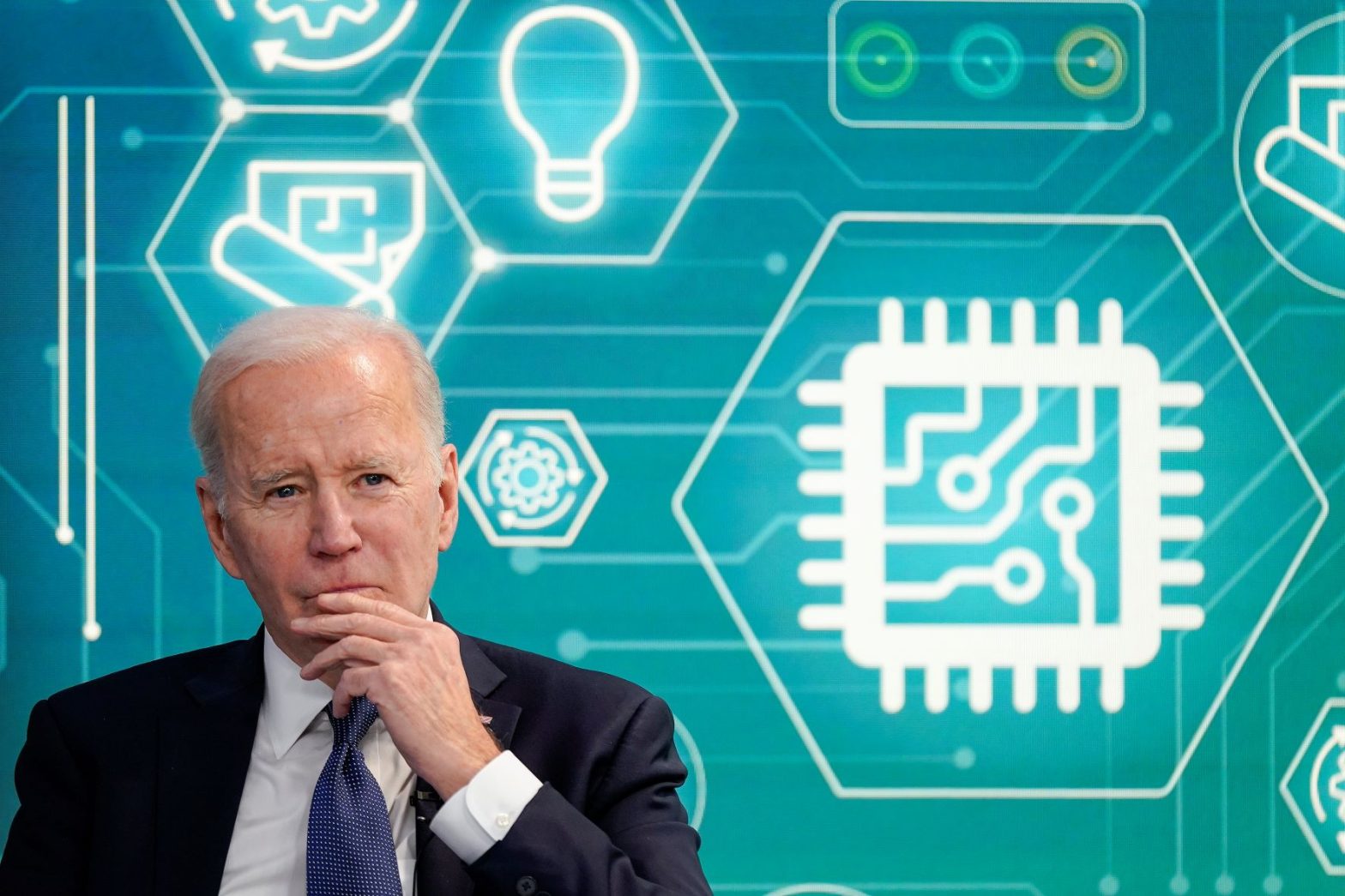Biden Hosts Event to Support Bipartisan Innovation Act

WASHINGTON — President Joe Biden held an event alongside business leaders, the governors of Michigan and Indiana and Secretary of Commerce Gina Raimondo urging Congress to pass the bipartisan Innovation and Competition Act.
The legislation, formally entitled the United States Innovation and Competition Act of 2021 in the Senate, would establish billions of dollars of incentives to businesses to produce semiconductors crucial to technological manufacturing and development in order to reduce reliance on foreign supply chains.
In addition, the legislation would establish the Supply Chain Resilience and Crisis Response Office at the Department of Commerce to monitor critical supply chains while expanding investment programs for small manufacturers.
Biden was joined by Siyoung Choi, president and general manager of Samsung Electronics’ Device Solutions Division, and Enrique Lores, CEO of Hewlett-Packard, among other business leaders at the event.
Introduced by Majority Leader Sen. Chuck Schumer, D-N.Y., and passed in the Senate last June, the bill received bipartisan input and support before moving on to the House for a hearing.
Schumer was joined by seven Republicans and six Democrats as original cosponsors of the bill, which passed in the Senate on a 68-32 vote.
The House passed its version of the bill, entitled the America Competes Act of 2022, on Jan. 19, where it was placed on the Senate Legislative Calendar under General Orders. The House version was sponsored by Rep. Eddie Bernice Johnson, D-Texas, where its original cosponsor was Rep. Frank Lucas, R-Okla.
Now, the two chambers are tasked with reconciling the differences between the two bills and passing finished legislation to the president for enactment.
“[The bill] invests in [research and development] the way we need to so we can invent and make the technologies of the future,” Biden said during the event. “Industries like biotechnology, artificial intelligence, telecommunications and others we can barely imagine today are [industries] we’re going to build the foundation on for future jobs and prosperity — not just here but around the world. So today, I’m urging the House and the Senate to work out the differences between the two versions of this bill and get it to my desk as quickly as [they] can.”
Semiconductors, sometimes referred to as microchips, are integral to the electronic components of thousands of devices and products, such as smartphones, computers, appliances, medical equipment, military systems and renewable energy sources, among many others.
In 2020, a global shortage of semiconductors was brought on by supply chain and manufacturing issues related to the COVID-19 pandemic, and problems still persist.
The bill also contains provisions to provide financial awards for companies to conduct research and development within key technology focus areas. The awards under those provisions will go to developers that demonstrate technological advances in areas of focus, like innovations that expedite short-term technology deployment.
“This innovation bill … is a key part of our future, it’s a key part of the Midwestern microelectronic corridor,” Republican Indiana Gov. Eric Holcomb said during the event. “It has everything to do with economic development and national security. … We need to get this done, we need to get it on [the president’s] desk, we need to get it signed so that we can not just catch up with the competition, but lead.”
Since the start of last year, the semiconductor industry has announced nearly $80 billion in new domestic investments through 2025, according to the Semiconductor Industry Association.
Samsung committed $17 billion to build a semiconductor facility in Texas and Intel is investing $20 billion to build an enormous semiconductor facility outside of Columbus, Ohio.
The legislation is specifically tailored to boost the nation’s competitiveness against countries like China where many tech manufacturing jobs have been outsourced. The bill aims to bolster the country’s economic resiliency against supply chain bottlenecks while creating new domestic manufacturing jobs and keeping costs low for consumers.
“Increasing this manufacturing here at home will reduce supply chain delays in transportation as well as lowering the cost of consumer electronics,” Democratic Michigan Gov. Gretchen Whitmer said during the event. “But we also saw during the pandemic that American manufacturing is crucial to our national security. And when the whole world comes to a halt because swabs are manufactured in Italy or N95 masks are manufactured in China, it is a national security issue.”
Reece can be reached at [email protected]
























